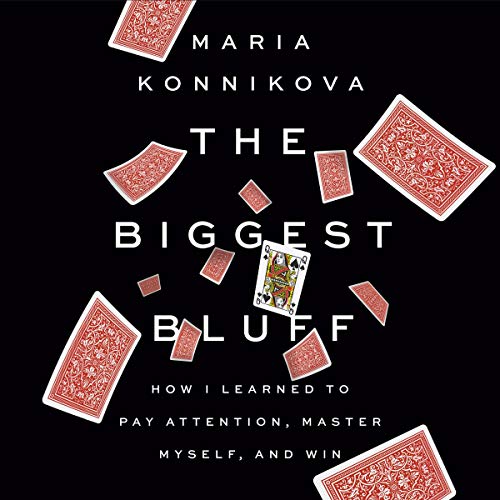
The line is from Maria Konnikova’s latest bestseller The Biggest Bluff. The book attempts to find a resemblance between Poker and life and extract lessons from Poker that we may apply in making decisions, becoming more open-minded, understanding the relationship between chance and certainty, and so on.
I’m through the first two chapters of the book. My biggest takeaways: although we maintain a false sense of control in life, we are not in control. Hence it is only wise that we be objective - see the reality as it is, always be open and ask questions, reflect and think, and finally, establish a process of thinking and follow it.
Reality is uncertain. The only operating procedure that works in an uncertain environment is keeping an open mind and always be looking for more and better information. That does not mean you keep exploring without making a decision. Instead, it means you develop a strong process of thinking. And in every decision, you follow that process and never take a chance. Before making a decision, you must take time, reflect, and then only take action. You should be fully aware of every decision you make.
The idea of less certainty and more inquiry is about keeping an open mind to new ideas, suggestions, and options. This sounds simple but often we operate with our predetermined set of ideals and ideas. When we come across anything different that does not match our ideas, we either shut us down or we discard the new idea.
The second layer of certainty is that we assume we know everything that we need to know. A sense of certainty in an utterly uncertain world kills both our opportunity to personal growth and make accurate decisions. Maria Konnnikova writes in The Biggest Bluff:
“Even a few seconds of reflection, that’s all you need to just go through every action. Stop and take a breath and think through your alternatives. Am I folding? Am I calling? Am I raising? Everything is always a possibility. You have to be careful you’re not acting too fast. It’s a major hole for a lot of people. Even I’m sometimes guilty of it.”
I’ve never really thought about a single situation in my own life in this light, but now it actually makes sense. Before any campaign, or, indeed, even minor military action, you need to evaluate the situation, the territory, the nature of the enemy. You can’t just plow ahead with one strategy because it worked in the past or you’ve seen someone else employ it successfully. Each time you act, you have to reassess based on what is now known versus what was known before. You need to have a process, a system, a plan—one that evolves with feedback. If you don’t, how will you know whether the outcome of your battle—a bad one in my case, but successful ones, too—is the result of skill or luck? If you’ve just lost your chips, was it because you chanced upon an unlucky situation—or because you planned a poor campaign?
Every good strategist has to think through all the possible permutations. The more players there are, the harder it is.”
